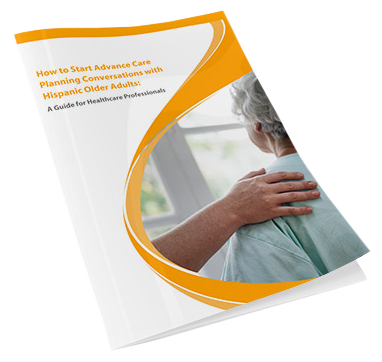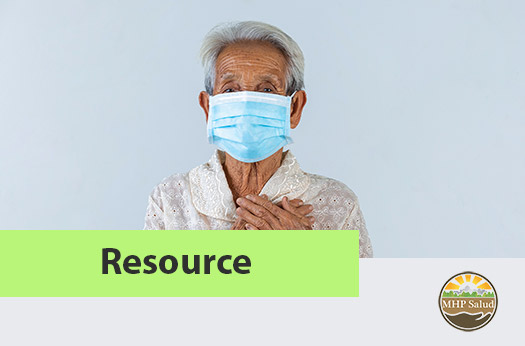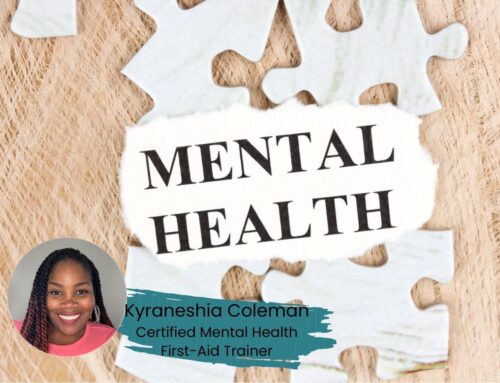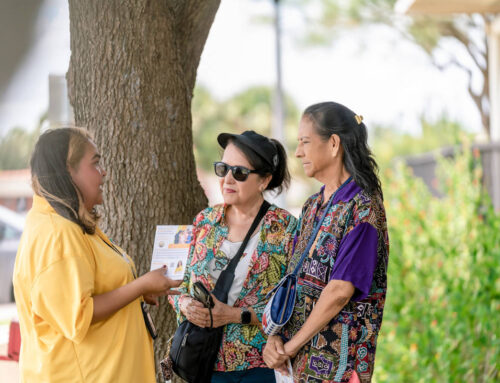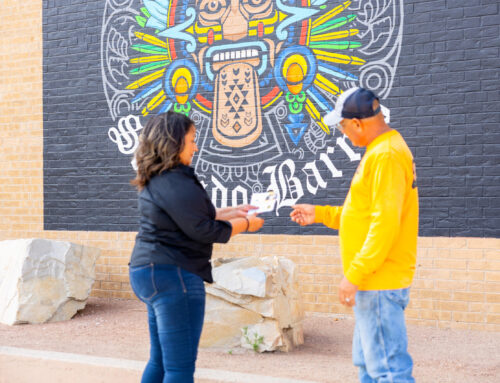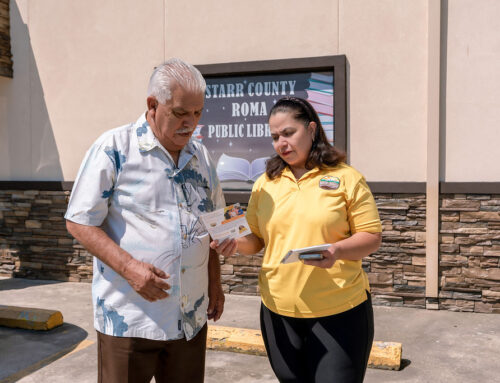Tips for Hispanic/Latino Family Caregivers of Older Adults: Planning for Public Health Emergencies and Common Disasters
Published July 2022 | Read this article in Spanish | Back to all news and updates.
A Public Health Emergency is when a community is impacted by the threat of an illness or health condition that poses a substantial risk to human health1, such as COVID-19, or natural disasters also known as common disasters. Examples of common disasters include wildfires, windstorms, floods, earthquakes, tornados, extreme temperatures, and hurricanes.
When caring for an older adult loved one, it can be helpful to identify key challenges and know what resources caregivers can access during a public health emergency. This allows caregivers to continue to provide care for their loved ones, despite the type of emergency they face. Being aware and learning about what to do is part of emergency preparedness.2
Why is it important to prepare for a public health emergency?
According to the U.S. Census Bureau, the Latino community is the fastest growing community in the nation, growing by 23% over the last decade. In 2019, 60% of all older Hispanic/Latino adults lived in California, Texas, and Florida.3 All three of these states are prone to common disasters. Although all older adults are at risk for public health emergencies, we saw Hispanic/Latino older adults were disproportionately affected by the COVID-19 pandemic. Therefore, it’s important to support Hispanic/Latino caregivers in preparing for public health emergencies to try to lessen the negative affects they may have on this group.
Unfortunately, many older adults and their caregivers are not prepared for public health emergencies. A 2020 poll, carried out by the University of Michigan Institute for Healthcare Policy and Innovation, asked a national sample of more than 2,200 adults ages 50 to 80, about their readiness for several kinds of emergency situations. The poll identified that:4
- Only 40% of survey respondents have talked with family or friends about emergency situations
- 44% signed up to receive local emergency alerts
- 55% have a 7-day supply of food and water
- Among those who take medications, 82% have a 7-day supply of essential medications
When caring for an older adult loved one, preparing for an emergency requires extra planning. Depending on the type of emergency, plans may be different. In some situations, older adults must stay in place, while in other situations they may need to relocate or require a sudden change in caregivers.
Some common challenges that older adults and family caregivers need to consider when preparing for emergency situations include planning how older adults will continue to receive care, medications, electricity, and contact with essential care providers. Certain medical conditions such as chronic diseases, limited mobility, hearing or vision problems, and cognitive impairment can make it difficult for people to access, implement, understand, or respond to emergency instructions and access resources.5
As we saw at the beginning of the COVID-19 pandemic, during a public health emergency there can be a shortage of basic resources such as food, water, medicine, and health care. To ensure continuous access to necessary care and avoid the negative impacts of resource shortages, caregivers must develop an emergency plan.
What resources are available to help develop an emergency plan?
Being proactive and preparing before a disaster occurs is key. Thankfully, there are resources available to help with this:
The American Red Cross has helpful tools and resources that can guide caregivers in preparing for a public health emergency. For example, this Information Guide for older adults explains what you must prepare before an emergency happens, what you may experience in an emergency, and what steps can be taken after an emergency.6
In response to pandemic, the CDC has developed resources to plan for public health emergencies geared towards older adults and their caregivers.7 The CDC also has a Complete Care Plan form and emergency supply kit form that helps support the preparation process.8
Another place to find helpful resources is the Administration for Community Living’s Emergency Preparedness webpage.9 Here you can find resources for preparing for common disasters and specific information for older adults and people with disabilities.
As family caregivers of older adults, it is important to be informed about common disasters in your region. By creating awareness at home through having open discussions with your loved ones about an emergency plan, you are already off to a good start!
Here are important key steps to take when preparing for an emergency:
- Emergency Contacts List. Include people who are a part of your care system (caregivers, physicians, medical facility). Post a copy of the list in your house and make a card with this information for loved ones to carry in their bags.
- Evacuation Plan. Learn about evacuation sites in your community. This can be a church, school, or other public place. It can also be the house of a trusted friend or neighbor.
- Emergency Kit. Include enough food, water, and supplies to last at least 3 days (including your medications).
- Maintain yourself informed through your local or national news and sign up for emergency alert updates.
- Identify support systems in case you need help relocating or transitioning back home.
- Avoid scams and work with your trusted community resources (American Red Cross, FEMA, your local government, and your support network).
For a detailed guide and other helpful resources visit Ready.gov.10
How can CHWs help our community prepare and transition through an emergency?
Community Health Workers (CHWs) are trusted members of their communities who empower their peers through education and connections to health and social resources. Integrating CHWs in the emergency preparedness process can help organizations reach vulnerable populations like older Hispanic/Latino adults and their caregivers.
CHWs promote awareness around the importance of emergency preparedness and help community members navigate and learn about the various resources available in their community. They can also help families prepare for an emergency by providing information that is easy to understand and addressing barriers or misinformation that the community may have. CHWs can also became an important part of continuing to receive care during an emergency as frontline public health workers by linking communities to much needed resources, as well as where to receive support once communities begin to recover.
Want to learn more about our initiatives for older adults? Click here!
-
- https://www.mass.gov/info-details/public-health-emergencies
- https://www.cdc.gov/aging/publications/features/older-adult-emergency.html
- https://acl.gov/sites/default/files/Profile%20of%20OA/HispanicProfileReport2021.pdf
- https://ihpi.umich.edu/news/many-older-adults-arent-fully-prepared-emergency-situations-poll-finds
- https://www.cdc.gov/aging/emergency-preparedness/index.html
- https://www.redcross.org/get-help/how-to-prepare-for-emergencies/older-adults.html
- https://www.cdc.gov/aging/publications/features/covid-19-help-older-adults-caregivers/index.html
- https://www.cdc.gov/aging/emergency-preparedness/creating-emergency-supply-kit/index.html
- https://acl.gov/emergencypreparedness
- https://www.ready.gov/kit
This project was supported by the Administration for Community Living (ACL), U.S. Department of Health and Human Services (HHS) as part of a financial assistance award totaling $255,124.00 with 75 percentage funded by ACL/HHS and $85,949.42 amount and 25 percentage funded by non-governmental source(s). The contents are those of the author(s) and do not necessarily represent the official views of, nor are an endorsement, by ACL/HHS, or the U.S. Government.
Blog Topics
This biannual newsletter for older adults and their caregivers focuses on aging issues that affect Hispanic communities.
